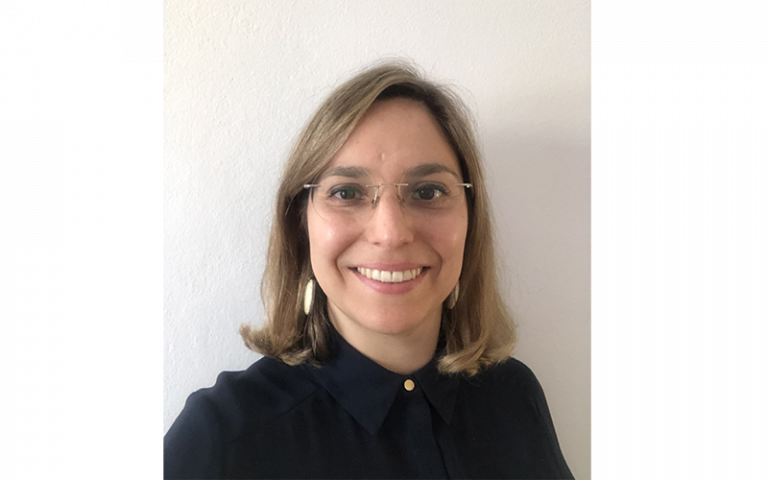Spotlight on Danae Phaedra Pocobelli
5 August 2022
Danae Phaedra Pocobelli graduated with a PhD from UCL Institute for Sustainable Heritage earlier this year, and now lectures at Hellenic Mediterranean University. Here, she shares her experience.

Before embarking on a PhD as part of the Science and Engineering in Arts, Heritage and Archaeology (SEAHA) programme, Danae graduated in the SEAHA MRes at UCL. Prior to this, she studied building engineering and architecture in Rome, at the Building Engineering and Architecture school of Sapienza University of Rome, with a thesis focussing on the restoration of an 1800 church in Athens, and had worked as a teaching assistant in the Restoration classes of her course in Rome.
Her PhD research focussed on using Building Information Modelling (BIM) process in heritage
buildings:
“BIM is a technology commonly used in the Architecture field, and it helps producing a virtual representation of a building. BIM enables collection and representation of different data, and this is one of the reasons why is such a hot topic today. However, it is a technology that has been developed for new buildings, and my research tries to adjust it to heritage buildings’ uniquity. Being interested in heritage since grad school, it was a natural development for me to embrace such a research topic. Plus, I’ve always liked designing with BIM-like tools!
During her time at UCL Institute for Sustainable Heritage, Danae appreciated the community support within the department, where chatting with colleagues and friends would spark ideas and offer up solutions to research questions.
“Friendship is so important during a PhD, because it can turn to a lonely activity very easily. I enjoyed a lot all the ISH events (guest lectures, lunches, research meetings), they were extremely important to building a community and also very helpful to expanding knowledge and stimulating curiosity.
Danae is currently teaching as a lecturer in IT at the Hellenic Mediterranean University in Crete, Greece:
“The IT knowledge I acquired during my PhD played a key role for me to be selected. My PhD also gave me resilience skills that came from learning adjust to remote teaching during Covid lockdown. Flexibility, trial-and-error, re-routing, all these were the normality during my PhD, and they became the normality again during Covid.
Danae explains that being organised is key to survive a PhD experience. However, it is also equally important to learn to be flexible when things don’t go as planned.
“I think that good and frequent communication with supervisors is fundamental, as well as setting achievable goals, so no one gets disappointed. I would suggest to anyone considering undertaking a PhD at ISH to take advantage from the fantastic spaces UCL has to offer, to meet fellow students and to participate to the many activities UCL organises.
 Close
Close

